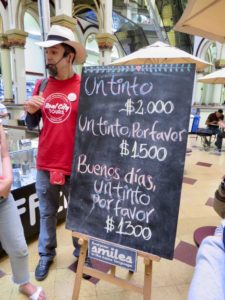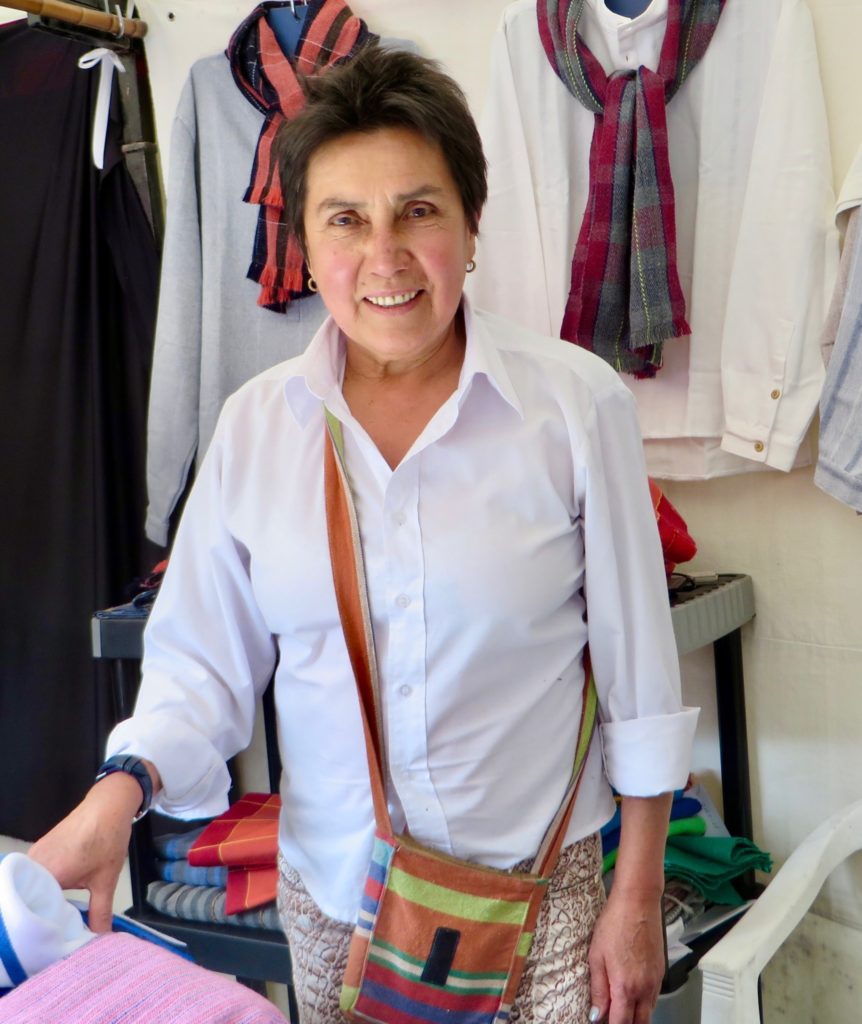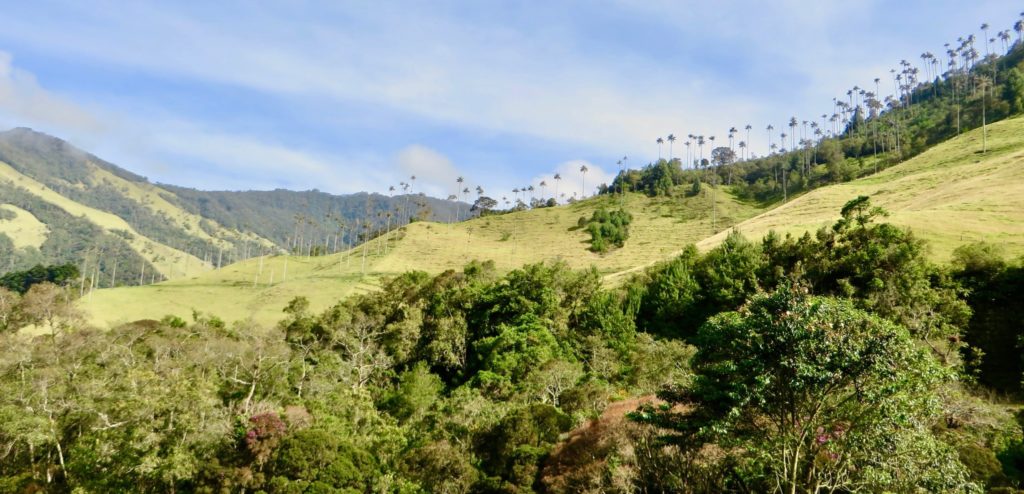A sign at a café in Medellín illustrates the Colombiano passion for courtesy. Un tinto—a small cup of black coffee—costs $2000 Colombian pesos. Or about 65 cents.

Ask for your tinto with a simple “por favor” and the price immediately drops.
Gush with courtesy: “Buenos días, un tinto por favor,” and your coffee is cheaper still.
The country’s sordid history of violence and drug cartels aside, this is a culture that values simple courtesy. In fact, it’s regarded as rude to launch into a conversation without the requisite smile and good morning. How are you? How’s your family? And your second cousin? Did she move back to Bogotá from the States? They want to know where you’re from and what you think of their safer, more tranquil, vibrant Colombia.

It’s an ease of conversation that leaves me tongue-tied.
Lucky for me, my traveling buddy Cynthia smoothed the way with her warm smile and congenial manner—making our trip that much more extraordinary. Etched in my memory bank is the bittersweet sadness of a diminutive shopkeeper from Ecuador forced to support his family from afar. The hotel manager who figured out how to get us a hot shower when the system broke down. The kind face of the weaver who sold me a handwoven tablecloth.
Having grown up in New York, I’m more at ease with the kind of streamlined, albeit impersonal transactions that take place every day in grocery stores and newsstands, at the bank, on the street corner when asking for directions. A perfunctory hello is followed by your request.
Having to pause and breathe and spend those few extra minutes getting to know someone can feel like an imposition.
Even in California, we’re in a hurry. When eating out at a restaurant, I’ve lately developed an uncontrollable impulse to hold onto my plate. Otherwise it’s likely to be snatched away before I’ve had a chance to sop up that last savory drizzle of avocado balsamic dressing. And woe to the slow eater who’s shamelessly ignored while everyone orders dessert. All over the world—Italy, Ecuador, Mexico, Spain, and Argentina—you can linger for hours without so much as a side glance from the waiter.

Years ago, traveling on a crowded bus through bush country in Africa—maybe Kenya or Tanzania—the bus would stop with no one in sight. No houses or bicycles, no cows or donkeys, or even people. Then seemingly out of nowhere, a young woman would appear; she’d climb on the bus with her packages and young children in tow. Invariably, another passenger would move aside to create a seat and perch the child on his lap. Then they’d chatter away like old friends.
They must know each other, we thought. But that wasn’t it at all. They were immensely open-hearted and friendly, and thought nothing of showing a common courtesy by picking up another woman’s child.
In the US, we’re suspicious of strangers who tell us too much about themselves. Or who make eye contact on the subway. Or who offer to hold our child’s hand when we’re overloaded with too many packages. I’m savvy enough to know that danger lurks, but I’ve also witnessed the callousness of strangers standing by while a young mother struggles with her stroller and baby and toddler and diaper bag trying to get onto a plane.

We rarely stop to consider the cost of our paucity of words and fear of generosity.
Since coming back from our two short weeks in Colombia, I’ve been practicing generosity in my words. I have to admit that as an introvert, it’s scary stuff. I want to be friendly—but not too friendly—for fear of creating the wrong impression. And then what?
So now I smile and say hello to the barista. I ask how she’s doing. And what else she has planned for the day. Because I’m quite sure there’s nothing to be lost, except a few moments of my time. And so much to be gained.
I invite you to read related travel posts about Morocco and Cuba. And my novel, Thin Places.